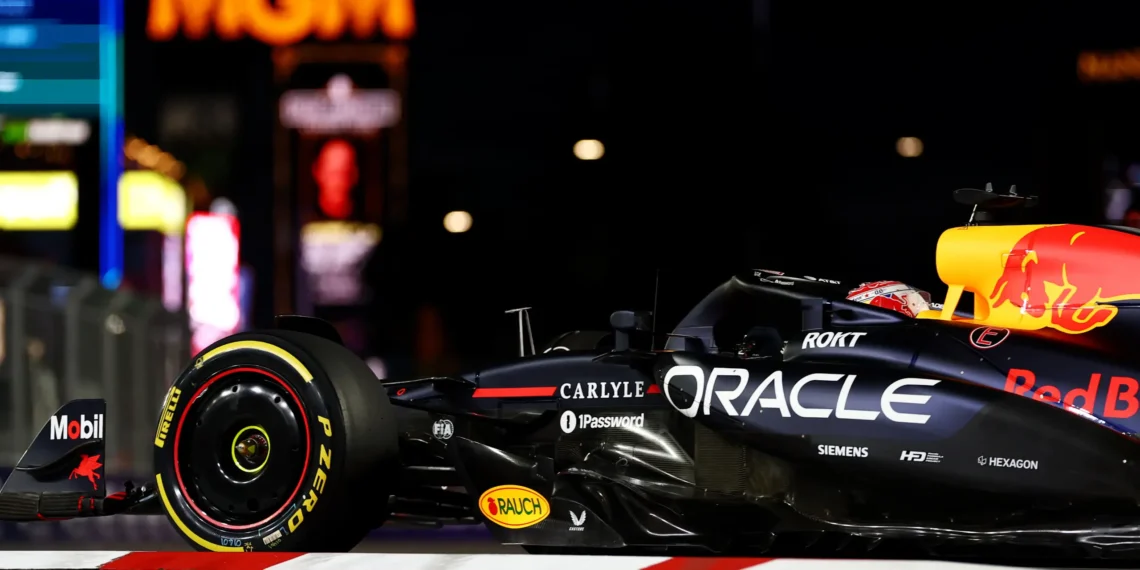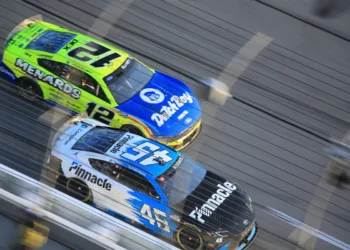Red Bull’s Bold Engine Change Sparks Controversy: Are They Playing by the Rules?
In a high-octane twist that has sent shockwaves through the Formula 1 community, Red Bull Racing is firmly standing by its controversial decision to swap out Max Verstappen’s engine ahead of the Brazil Grand Prix. Despite McLaren’s fierce allegations questioning the legality and compliance of this move with the sport’s cost cap regulations, Red Bull asserts it acted entirely within the rules of the game.
After Verstappen’s unexpected exit in Q1 at Interlagos, Red Bull made a dramatic call: not only did they overhaul the car’s setup, but they also fitted a brand-new power unit—this after they had already exhausted Verstappen’s annual engine allocation. The implications of this swap are monumental: breaking the parc ferme rules to enhance performance meant that Verstappen would be starting from the pitlane, thus avoiding the typical grid penalties associated with exceeding engine component limits.
However, McLaren isn’t backing down. They have raised pointed questions about whether such performance-driven changes should be included under the cost cap—an area riddled with ambiguity. While customer teams like McLaren shell out cash for their engines, Red Bull’s relationship with Honda is far more intricate, fueling suspicions of an uneven playing field.
The FIA’s response to this brewing controversy has been tepid at best. Officials acknowledge that the regulations currently lack clarity regarding power unit changes. As FIA single-seater director Nikolas Tombazis stated, “We don’t feel we have the expertise to argue with them whether it’s really a reliability or strategic change.” The current loophole allows teams to make adjustments under the guise of reliability, but it also opens the door for strategic manipulation—something that McLaren vehemently opposes.
Red Bull’s chief engineer, Paul Monaghan, has fired back at McLaren’s insinuations, likening their actions to “rolling a hand grenade into the situation.” He insists that Red Bull’s engine swap is not only justifiable but also legitimate, highlighting that such changes have been a common practice within the sport. Monaghan further expressed confidence that their actions would withstand scrutiny, stating, “I believe our actions we can defend and there will not be a penalty against us at the end of the year for it.”
Yet, when pressed on whether he thinks this change falls outside the cost cap, Monaghan dodged, admitting, “I am not a finance regulation expert.” This evasiveness has only fueled further speculation about the ethical and regulatory boundaries being tested by Red Bull’s daring maneuver.
As the debate rages on, McLaren’s technical director Neil Houldey articulated a stark contrast: “We are in a bit of a different position [to Red Bull].” He underscored the inherent unfairness of the current regulations, which seemingly favor works teams over customer teams when it comes to engine changes. The disparity in resources and strategic freedom has ignited a fierce criticism of the existing framework.
Looking forward, the FIA plans to address these discrepancies in the upcoming regulations, which will introduce a cost cap for engine manufacturers. Tombazis explained that these changes aim to eliminate the strategic loopholes that currently exist. “The PU manufacturers would never find it convenient to make a strategic change,” he asserted, hinting at a future where competitive integrity is fortified.
As the dust settles on this explosive exchange, one thing is clear: the battle lines are drawn in the world of F1, and Red Bull is not backing down. With the stakes higher than ever, fans and competitors alike are left to wonder what the next chapter holds in this thrilling saga of speed, strategy, and the relentless pursuit of victory.










